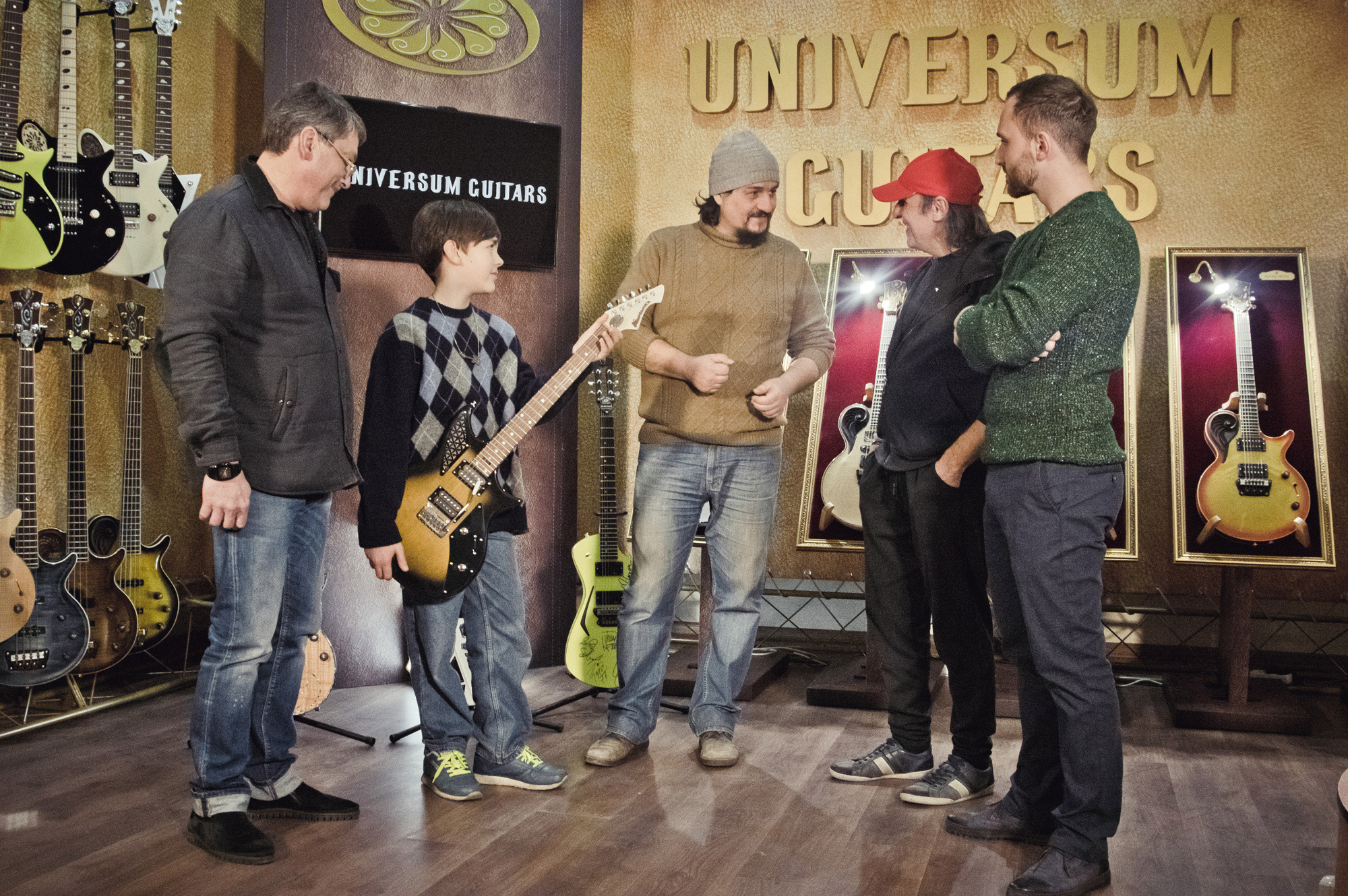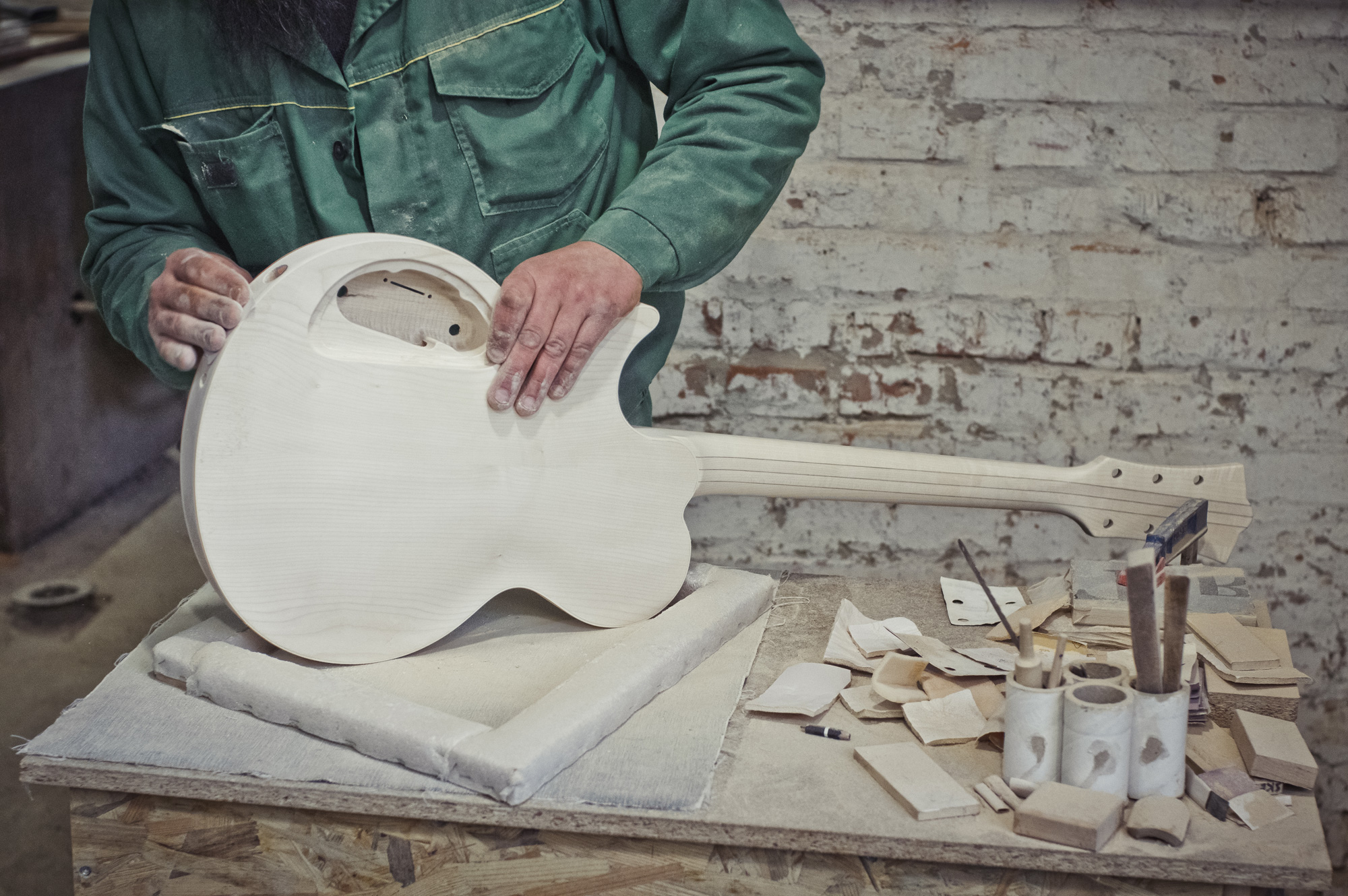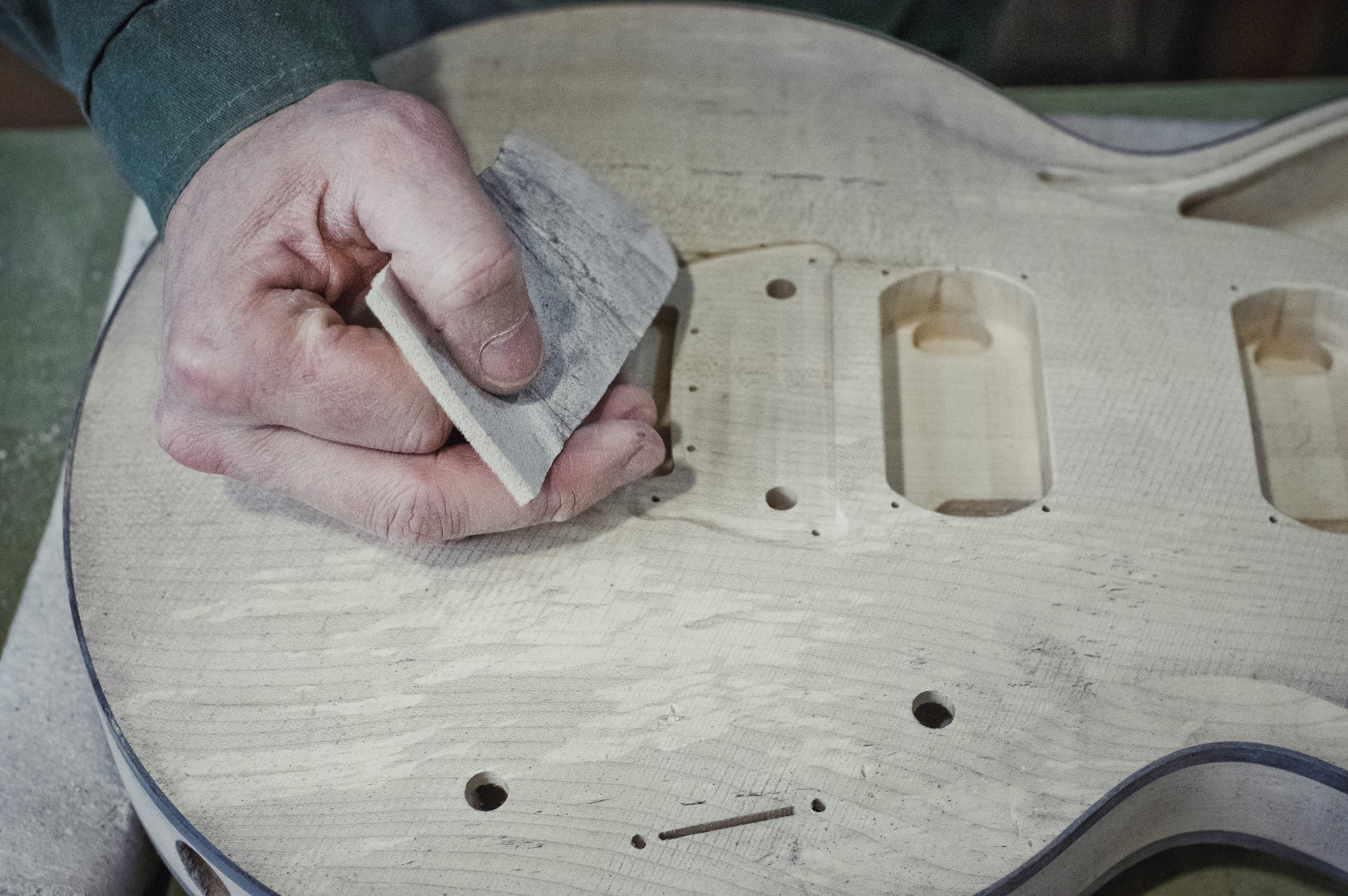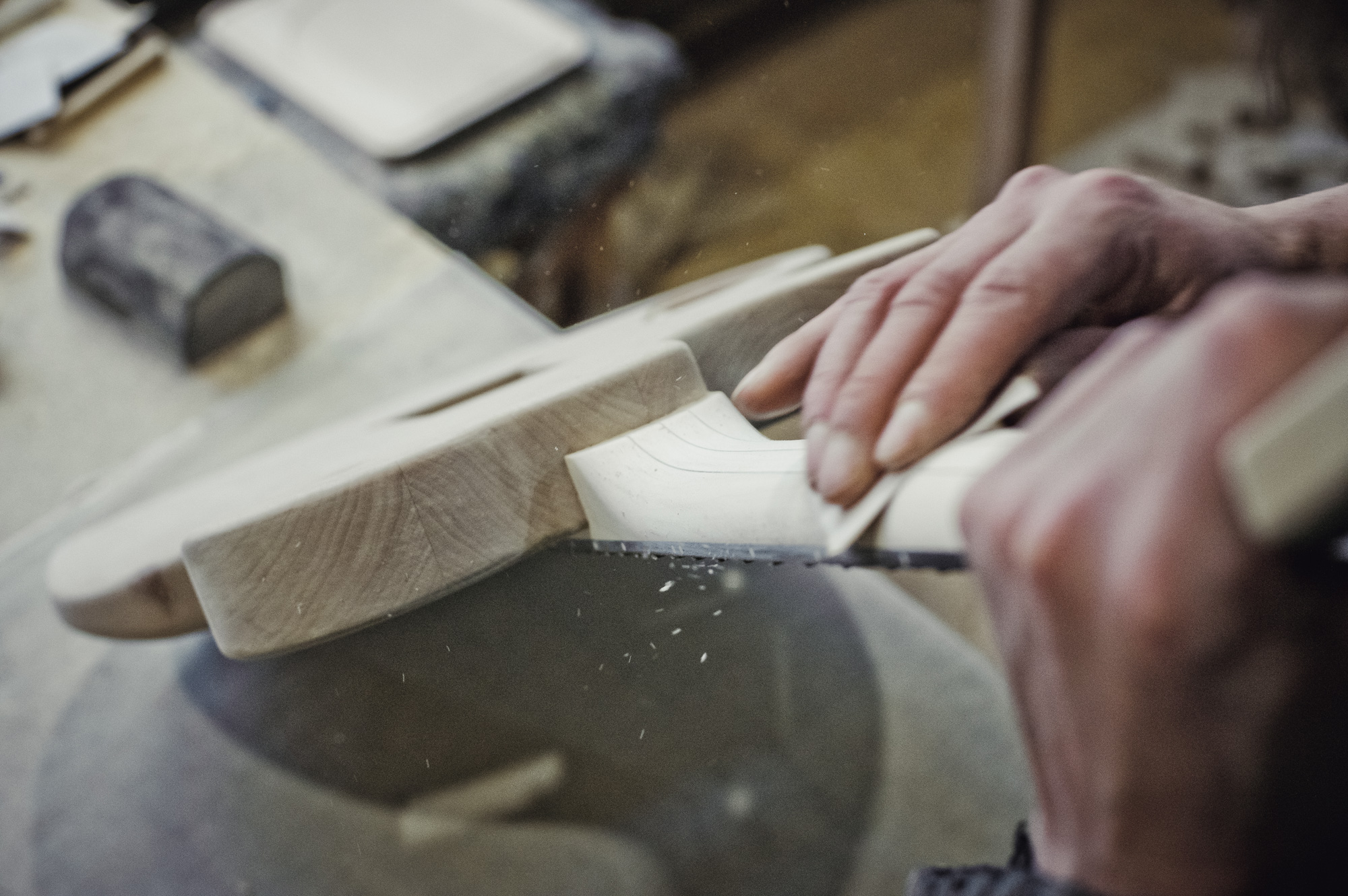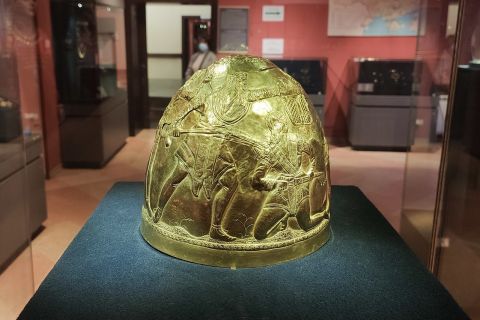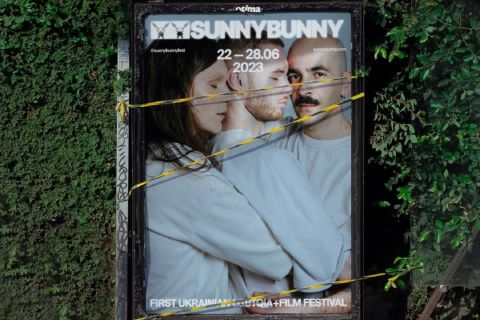Made in Bila Tserkva: How Ukrainian Guitar Manufacturers Managed to Enter the Global Market
The owners of Walt Grace Vintage call themselves purveyors of dreams. Their merchandise is rare cars and guitars, the best examples of emotional design and technical perfection. The cars include a 1957 Jaguar and 1958 Ferrari sports car. The guitars they sell are vintage Gibsons and Fenders. In addition they have a few Universum guitar models: an Elena Delta for $3,570, an Elena Gamma for $3,950 and an Elena Epsilon Bass for $3,780. Elena is the name of the wife of the designer and developer of these guitars, Alexander Doroshenko from Bila Tserkva. Today, his instruments are well known to experts all over the world, even though two years ago such guitars didn’t exist even as an idea.
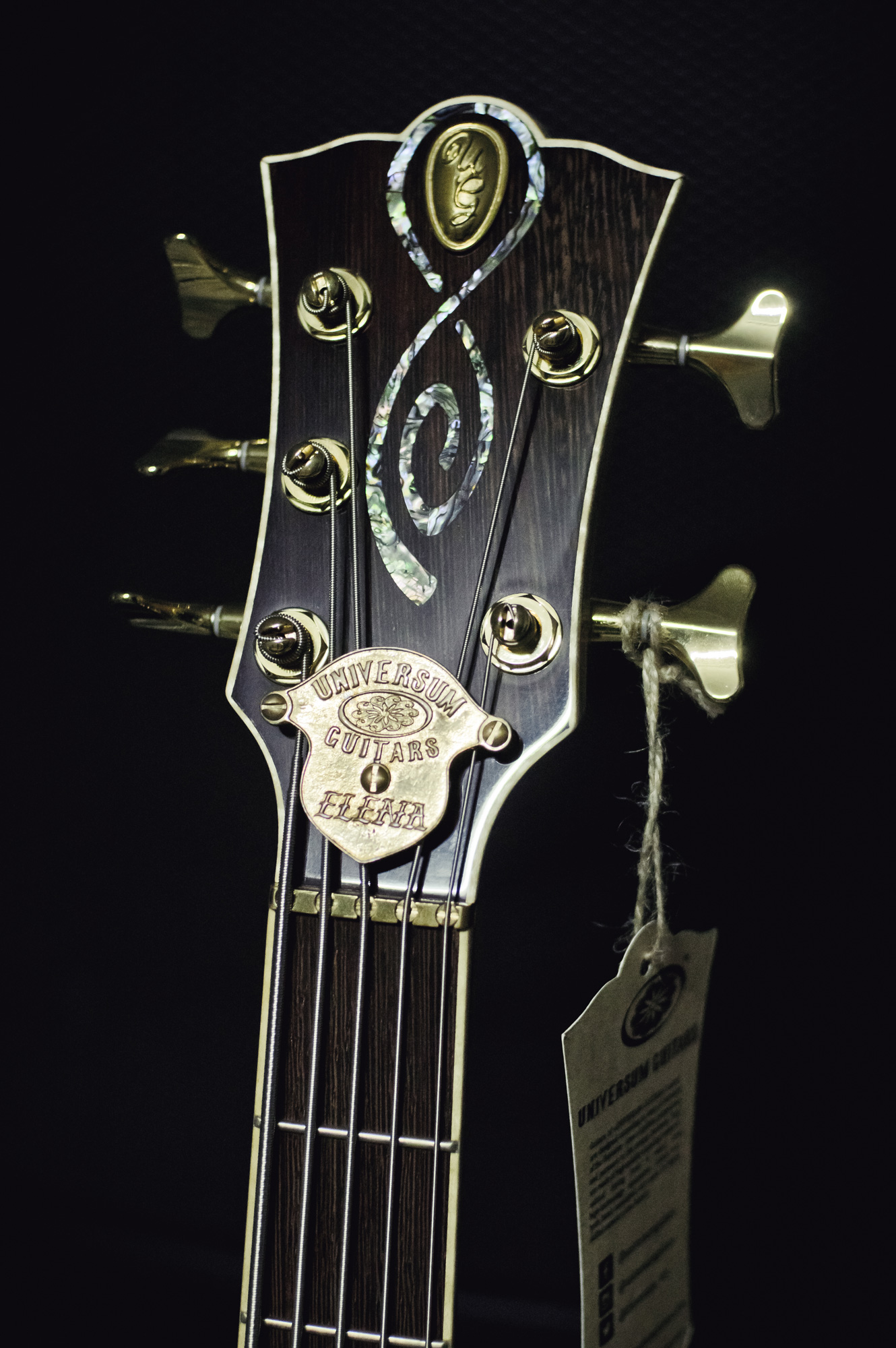
How It All Began
In 2016, structural engineer and guitar collector Alexander Doroshenko came to repair one of his guitars at Vadim and Dmitriy Gavrylenko brothers’ shop in Bila Tserkva. They met, fell into a conversation, and as soon as a week later they were discussing the idea of a joint project.
Alexander is a little over fifty. He has a Magnum P.I. style moustache and glasses on the tip of his nose which make him look like an inventor. In the 1980s the aspiring engineer dreamt of getting Andrey Makarevich’s guitar. The dream came true with plenty to spare: Makarevich now plays the guitars designed by Doroshenko.
A couple of people are behind the Universum Guitars brand. Alexander Doroshenko is the project designer. All 40 models of Universum Guitars (including the single copy of a unique folding guitar) are made according to his designs. Craftsman Vadim Gavrylenko is responsible for production. The guitars are even manufactured out of wood prepared as long as 20 years ago. Brand promotion abroad is the work of Pavel Masterov. His job is to ensure that Ukrainian guitars are represented at trade shows all over the world.
The founders aren’t going to move from Bila Tserkva as they believe in the magic power of the town.
How Guitars Are Made
There is a smell of wood chips in a large workshop with huge windows. This is where guitar fretboards and bodies are made. Assembly, drying, and finishing are carried out on the first floor. The founders of Universum say that productive capacity allows for over a thousand guitars a year, but quantity isn’t the goal here — a little over 100 instruments worth $700 – 6,300 were made here within a year and a half.
“Price mostly depends on how long wood was being dried in natural conditions. Other companies generally use freshly cut wood that is hastily dried up in special facilities, especially in Asian countries. We don’t do this. For us this is a matter of principle,” explains Vadim Gavrylenko.
All bronze and brass guitar hardware is made right here in Bila Tserkva. The only thing they buy is strings, tuners and electronics. However, the owners say that the materials aren’t the most costly part of production. A lot more money is spent on practical experiments to create new models.
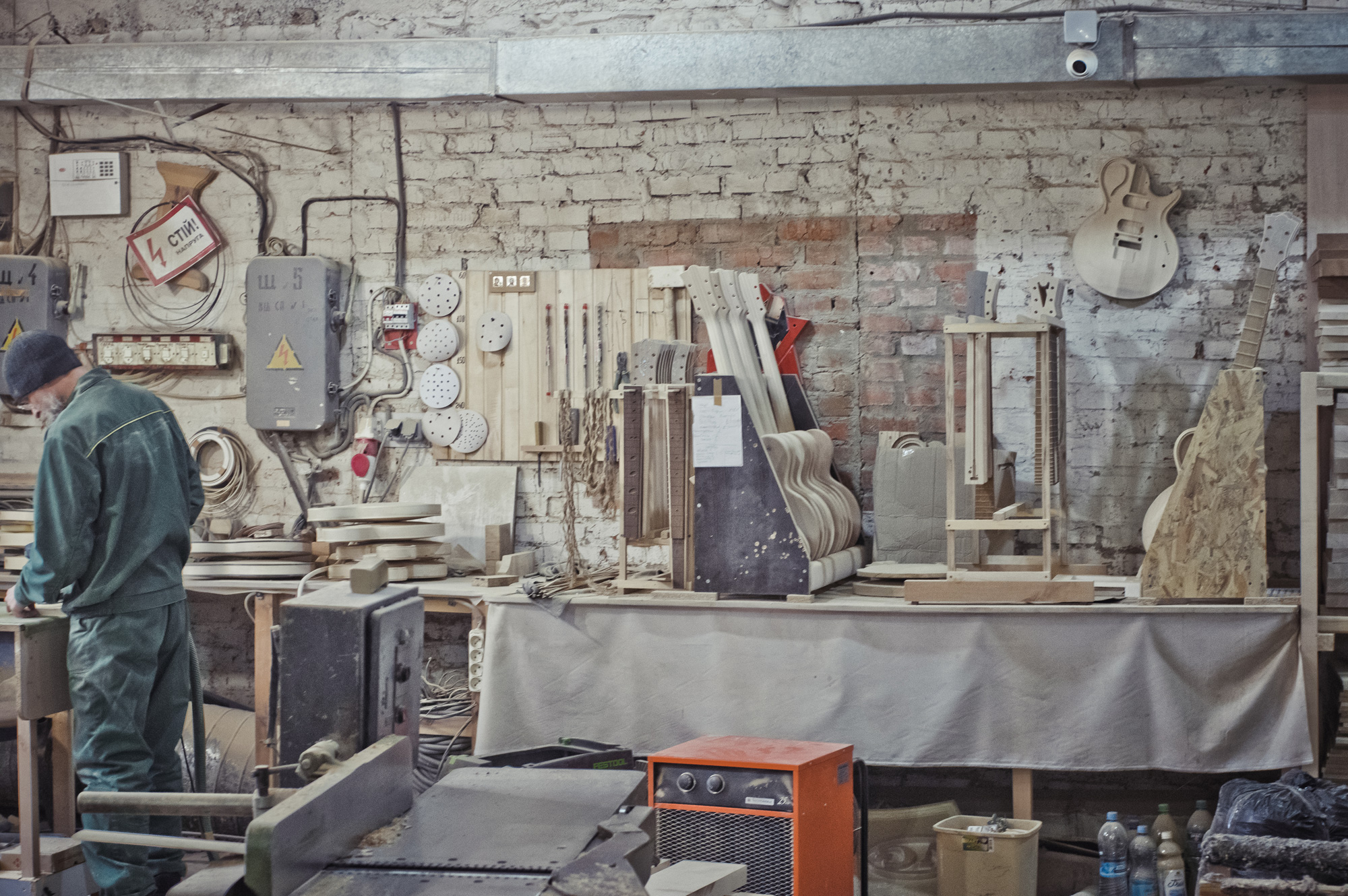
Woodworking shop on Universum Guitars factory's ground floor
Alexander Doroshenko ensures that the most valuable part of their guitars is the special approach to design. “Every guitar is the result of mathematical calculations according to the method I developed based on the Golden Ratio principle,” he says. “An instrument is an oscillating profile consisting of strings, two support points and wood. Knowing the Golden Ratio principle one can predict the distribution of sound waves, as well as control them”.
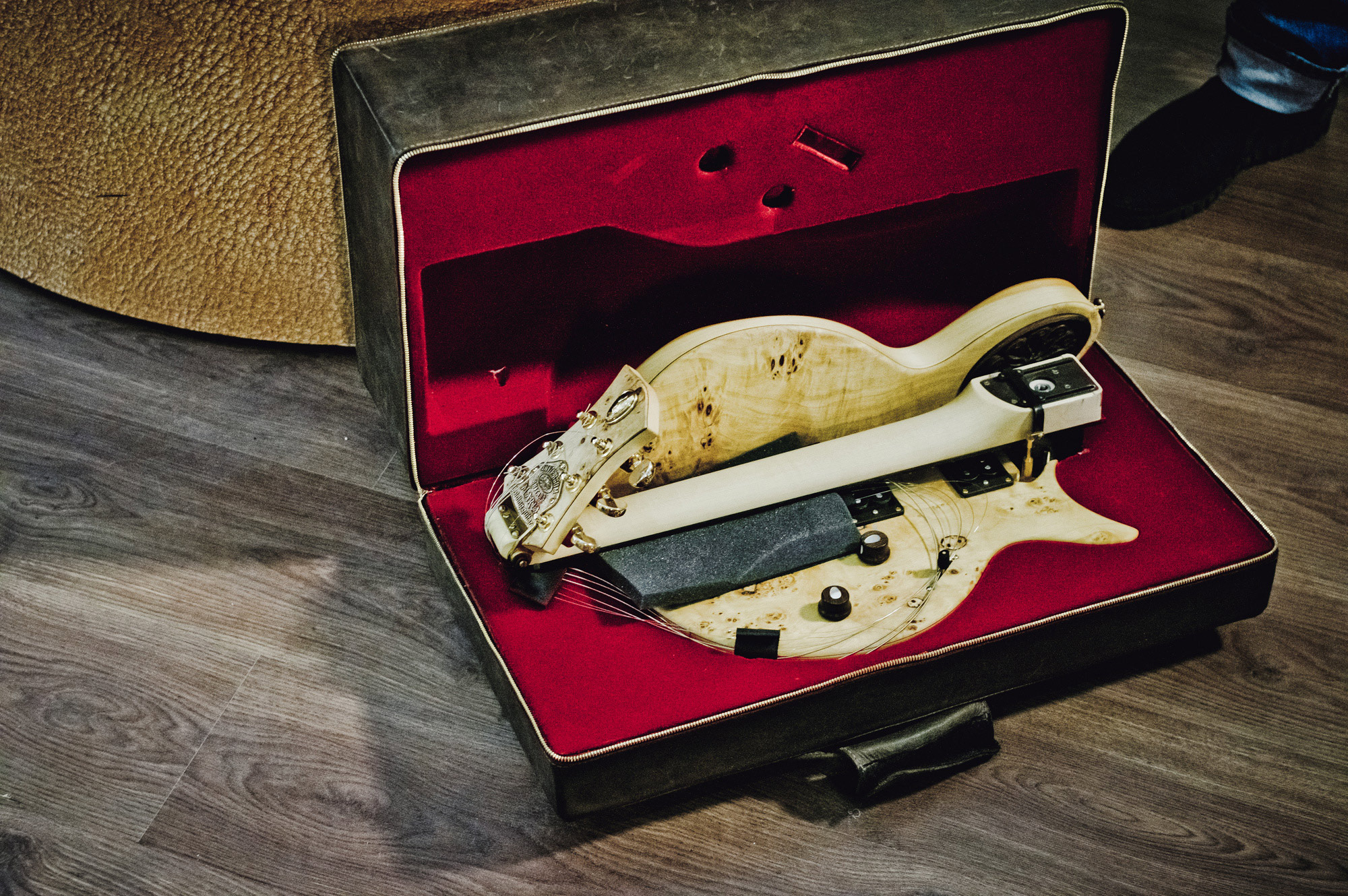
Universum's folding guitar that can be checked in as a carry-on
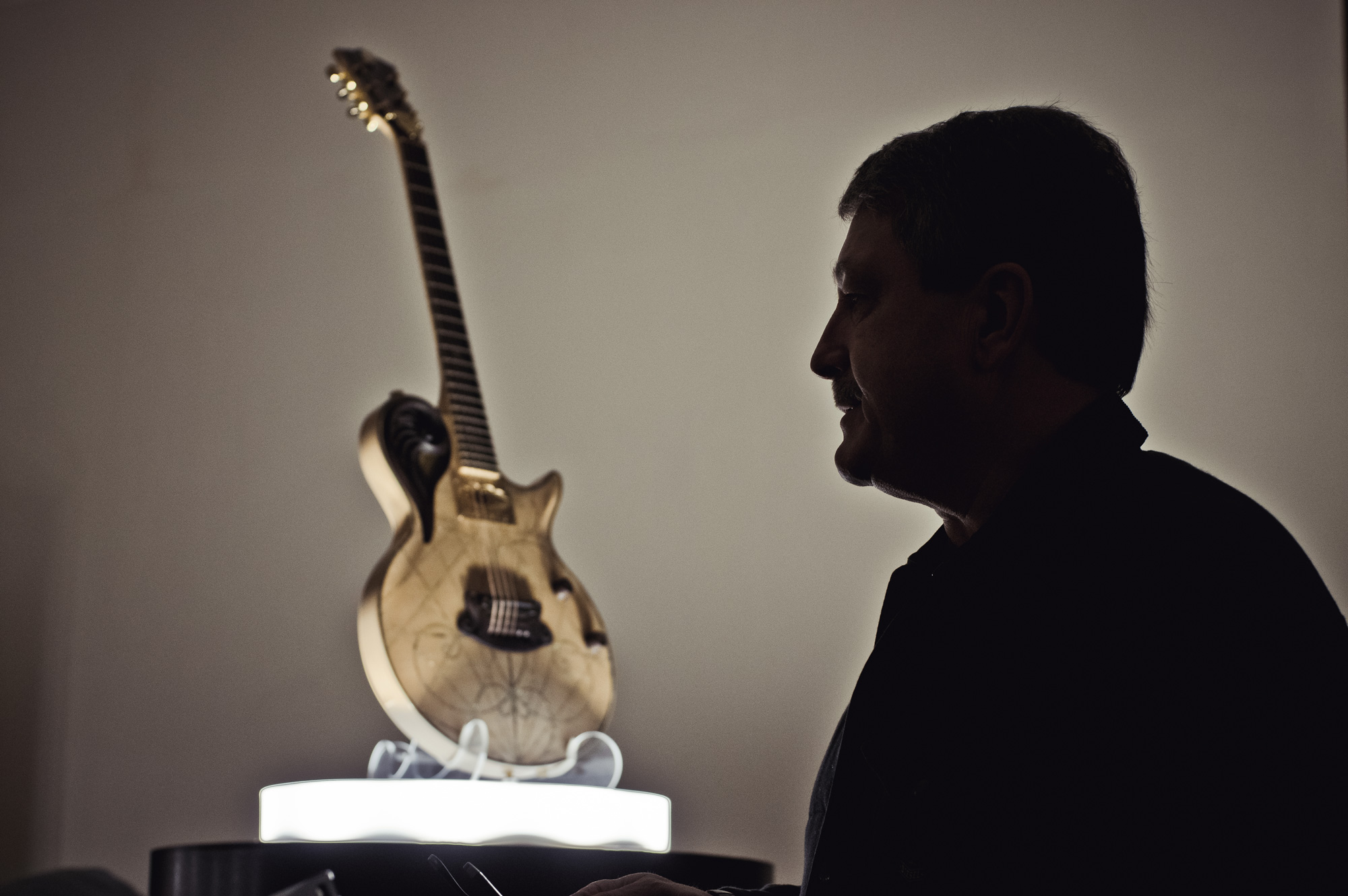
Designer of all Universum guitars, Alexander Doroshenko
How Design Was Created
One can notice guitar craftsmanship in the application of pearl, gold plating and African ebony wood. One square meter of this wood costs $200,000.
The founders of Universum are proud of their design and promise that they developed their guitars by themselves without involving any other artists or being influenced by Gibson and Fender. However, Alexander Doroshenko does confess that his inspiration is Paul Reed Smith, who was an individual craftsman before he became a mass producer of guitars. This is who Universum would like to collaborate with.

Stocks of wood in factory's warehouse
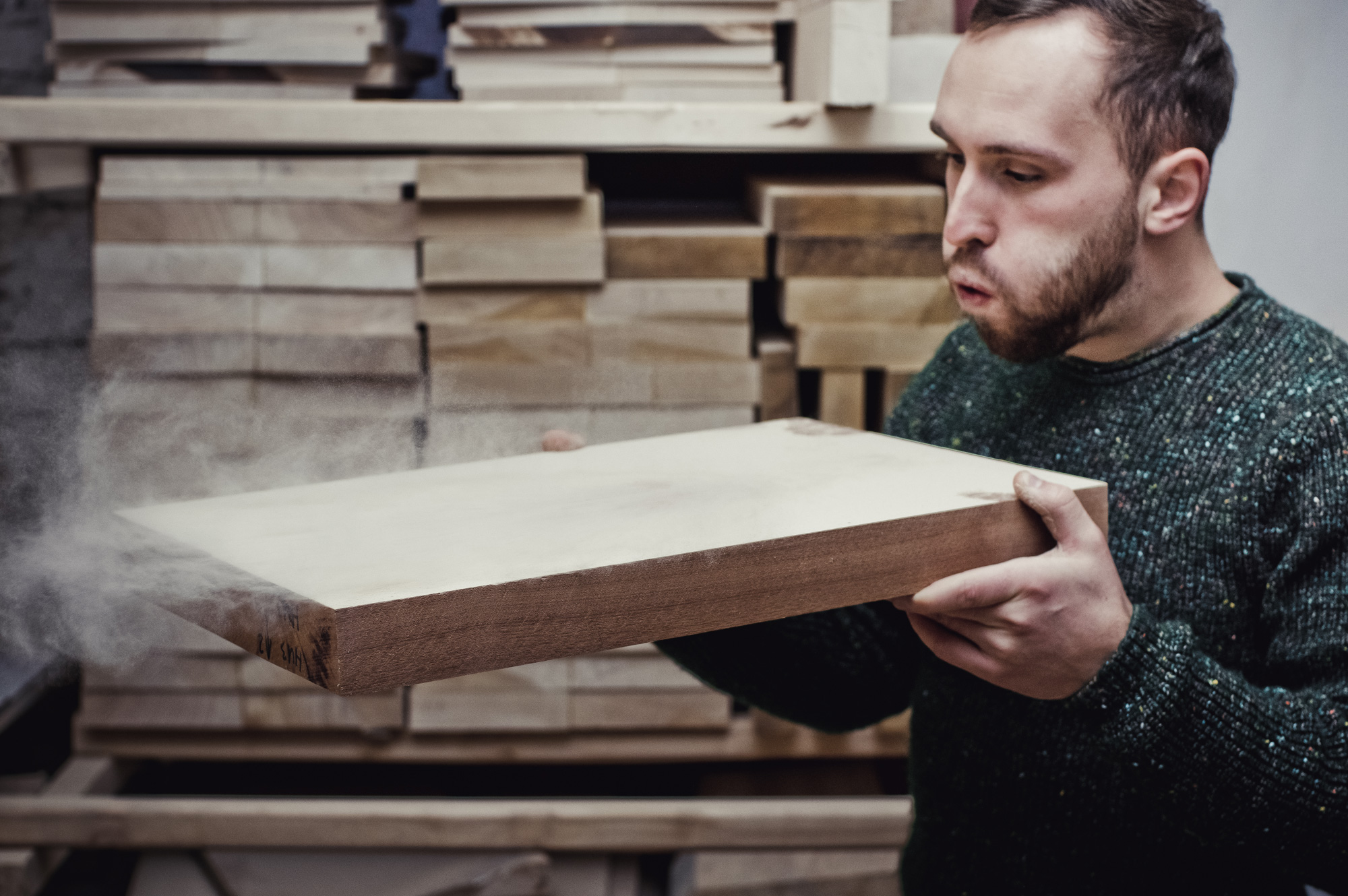
How the Brand Is Promoted
Universum Guitars Co-Founder and Partner Pavel Masterov says that the factory was first noticed at Namm Musikmesse Russia trade show in September 2016. Then, Bila Tserkva guitars found their way to Germany, at Frankfurt’s trade show Musikmesse Frankfurt and Berlin’s Holy Grail Guitar Show, where the most famous top musical professionals gather from all over the world.
In January, Universum will take twenty of their best guitars to California for the NAMM Show, one of the biggest music instruments trade shows, which is visited by thousands of bloggers, journalists, and musicians.
“Negotiating with people is a great passion of mine, but participation at such events is always a risk. If trade show participants don’t like your guitars they will honestly write about it, which will surely impact the sales,” Pavel says. “But up to today we have received the best reviews. We have reasons to be proud, as the company is a little short of two years old, and our guitars have already been in the hands of Alice Cooper, Tommy Emmanuel and John Patitucci.”
Universum owners met Cooper during his shows in Lithuania and Germany. Soon the experts from Bila Tserkva are planning to make a guitar for his side project, Hollywood Vampires. “I must say that we have been very lucky and people are very positive towards us,” Pavel Masterov notes. “In 99% of cases people are blown away by the sound and look of our guitars.”
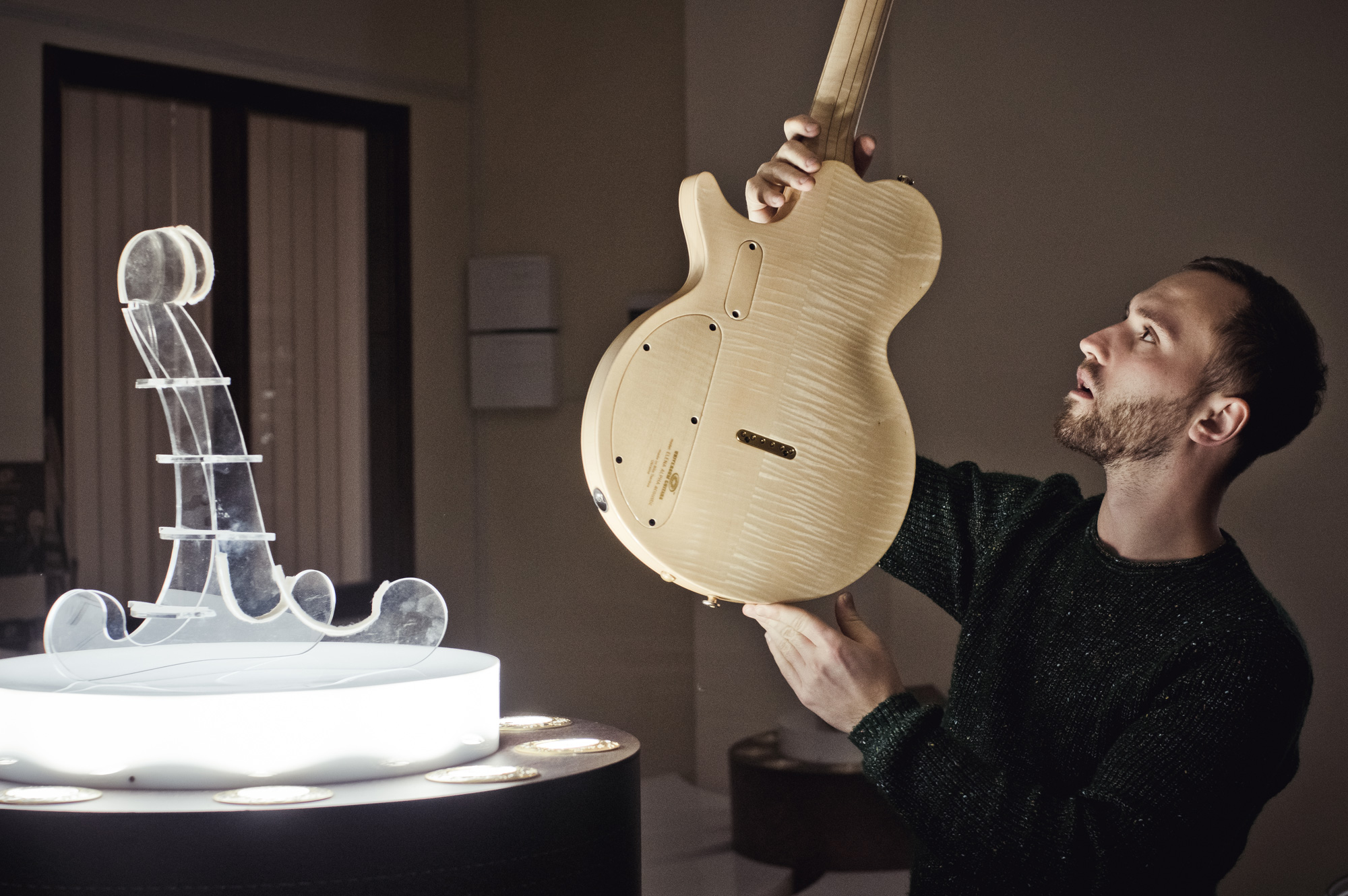
One of Universum factory's partners Pavel Masterov
Universum believes that their customers are emotional people. They also bet on the young generation’s interest in rock music. Soon a school will open at the factory with Kyiv guitar player Sergo Chanturiya at its head. Their first student is ten-year-old Sava Bogorad, who, they believe, will become a star.
The Universum founders aren’t going to turn their business into a mass production. Their instruments aren’t sold in shop networks, and yet the brand recognition is on the rise. Universum guitars are sold in Israel, Ukraine, Russia, and the USA. Their plan is to reach the Japanese, Canadian, Australian, and Scandinavian markets.
“We’re not trying to compete with the giants, such as Gibson and Fender. Recently, Framus & Warwick, who have existed since 1946, opened a new production site and partially mechanized it. Meaning there are no human craftsmen there to work their magic on an instrument for months on end. Guitars from an assembly line will never be alive. That’s not what we want,” Alexander Doroshenko says.
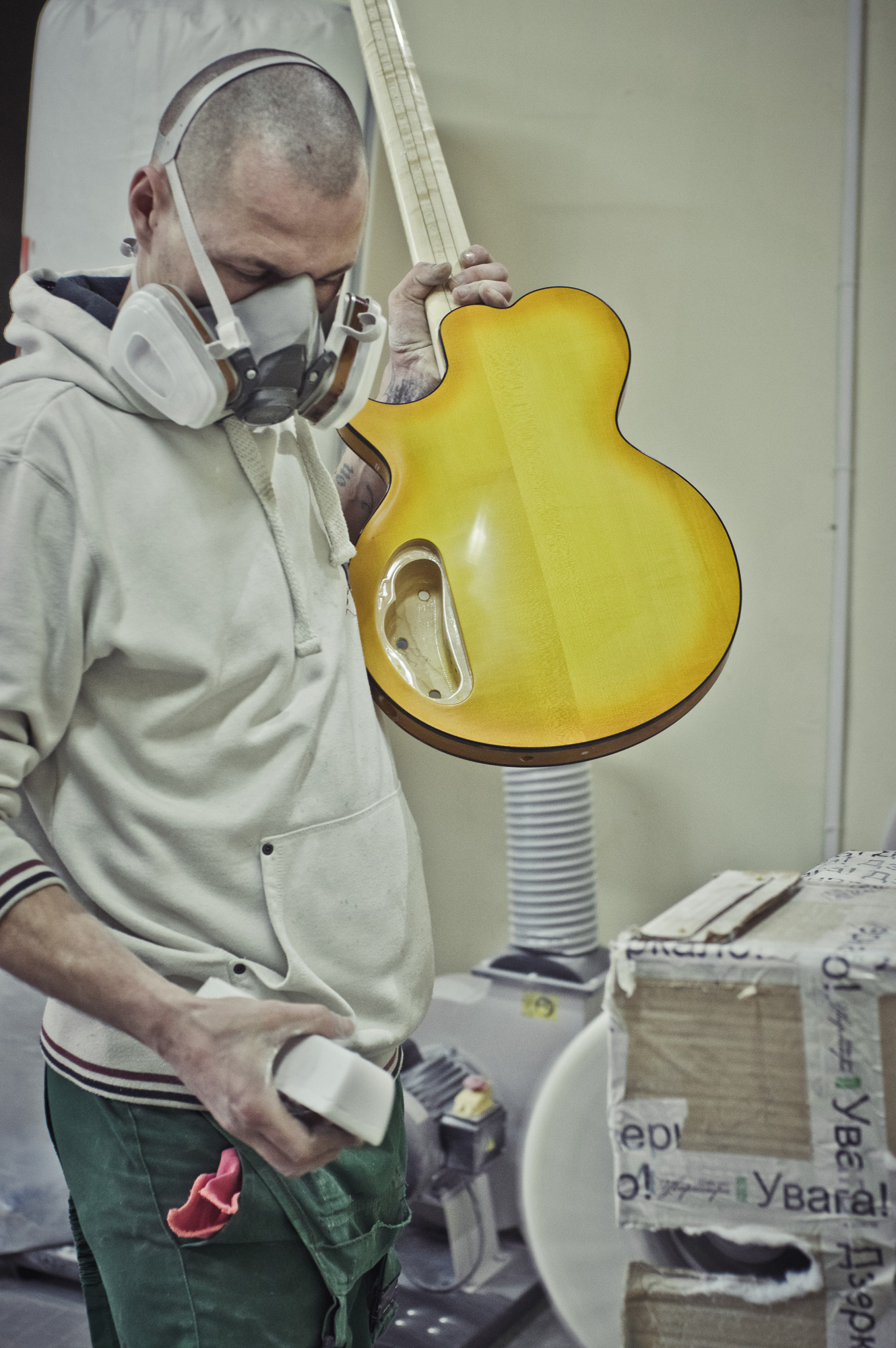
Guitar finishing
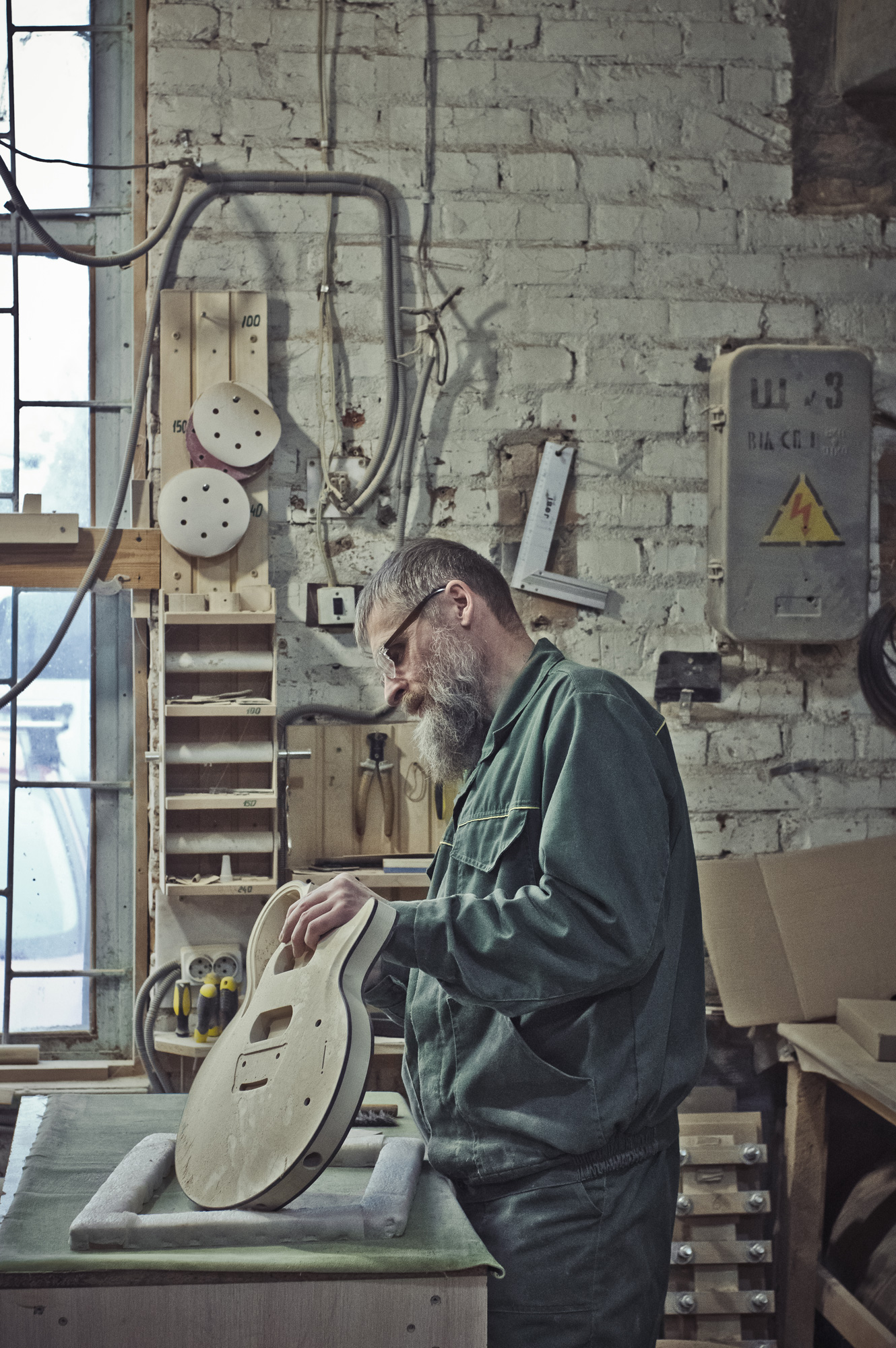
Woodwork craftsman
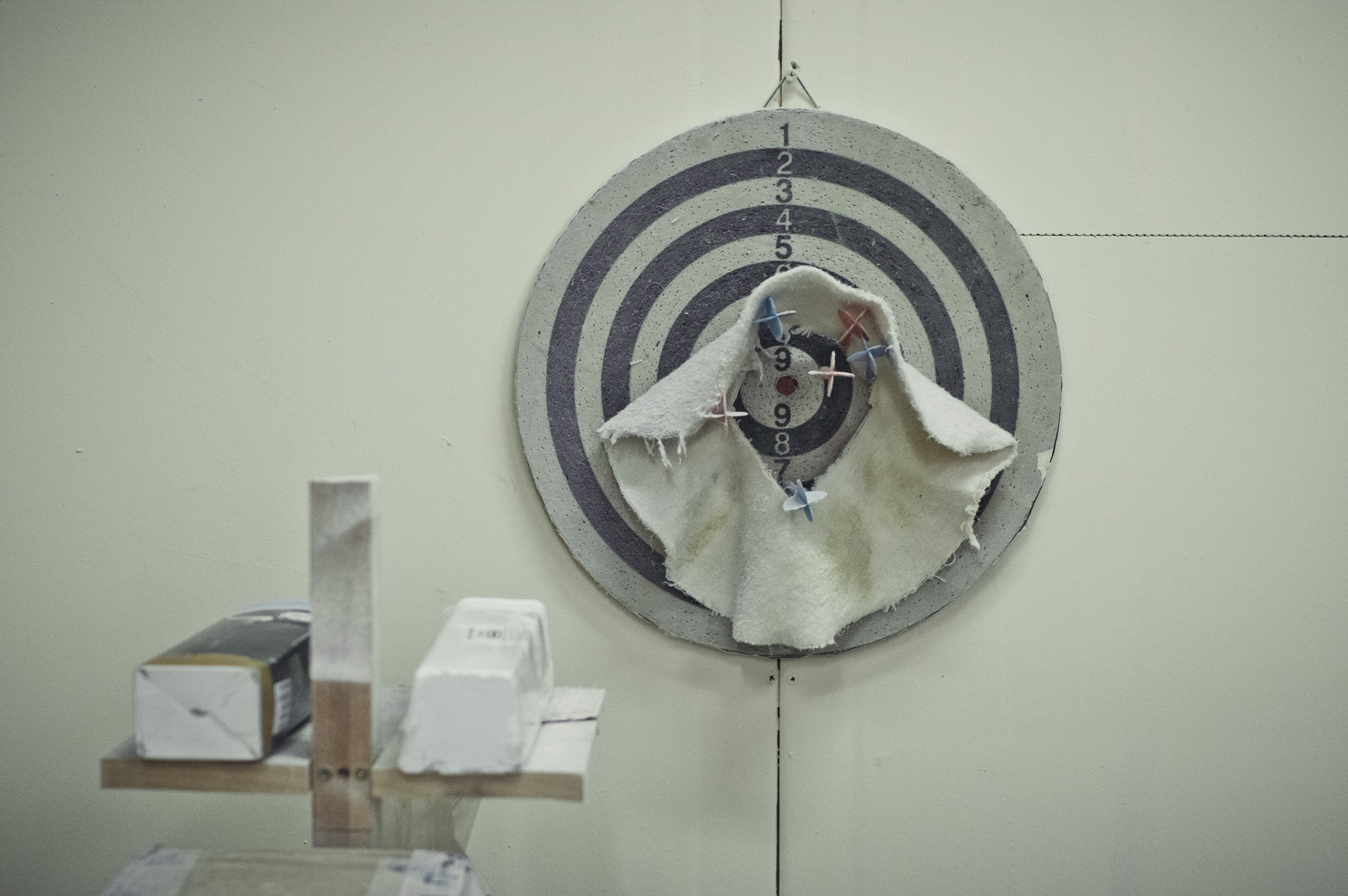
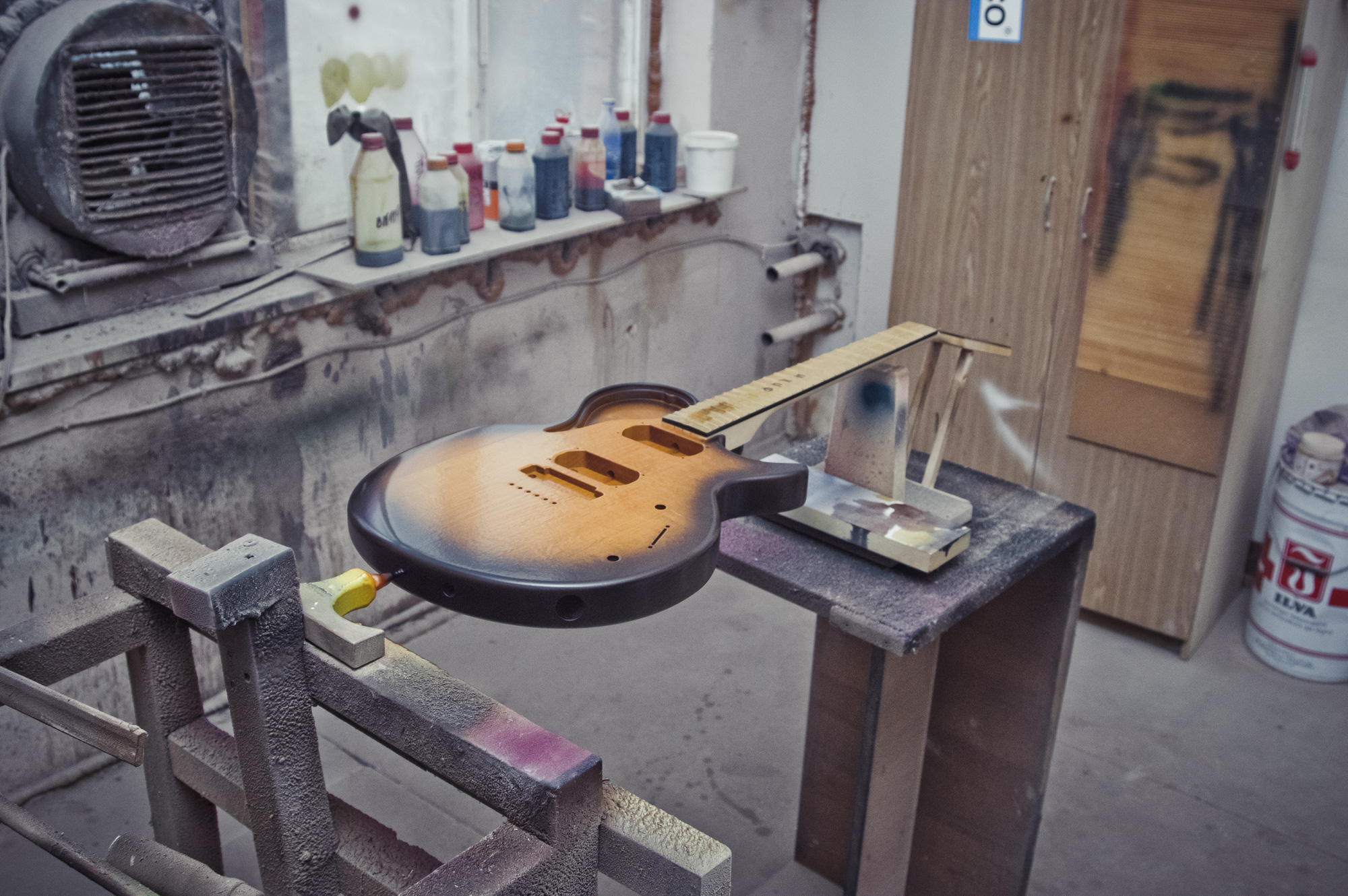
Room for painting and drying guitars
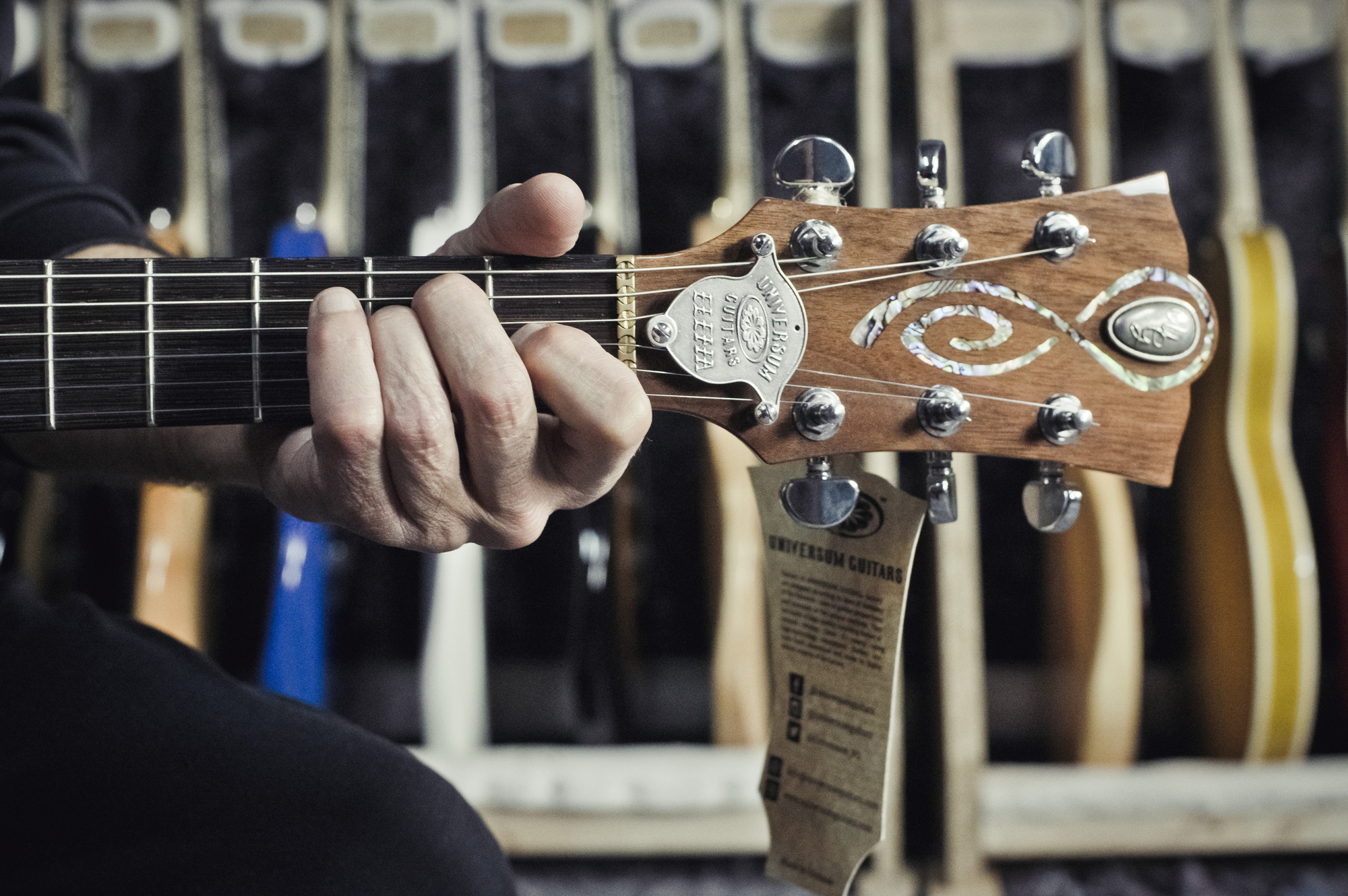

Universum Studio to check the instrument's sound
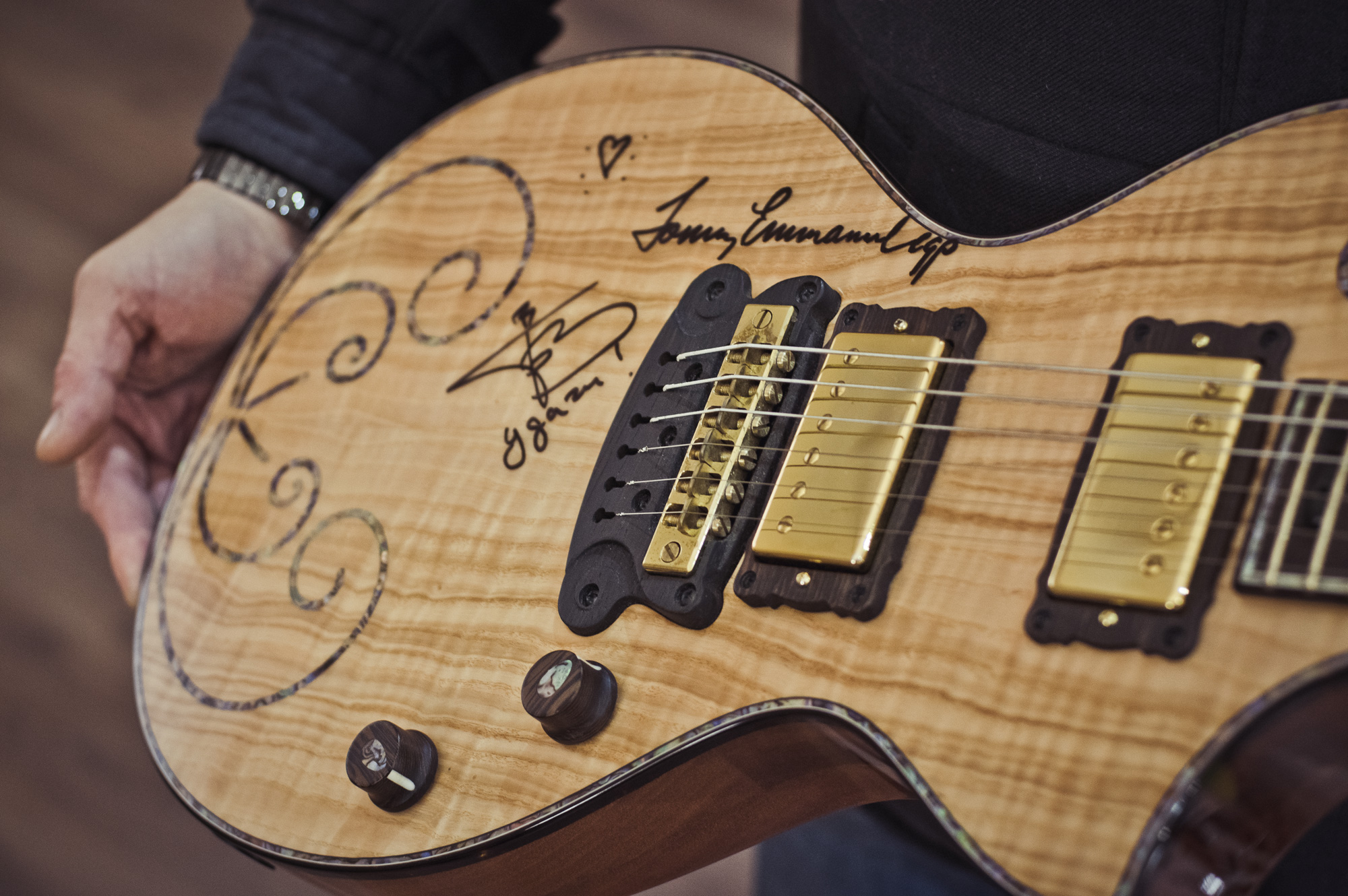
Guitar signed by Australian guitar player and two-time Grammy nominee Tommy Emmanuel
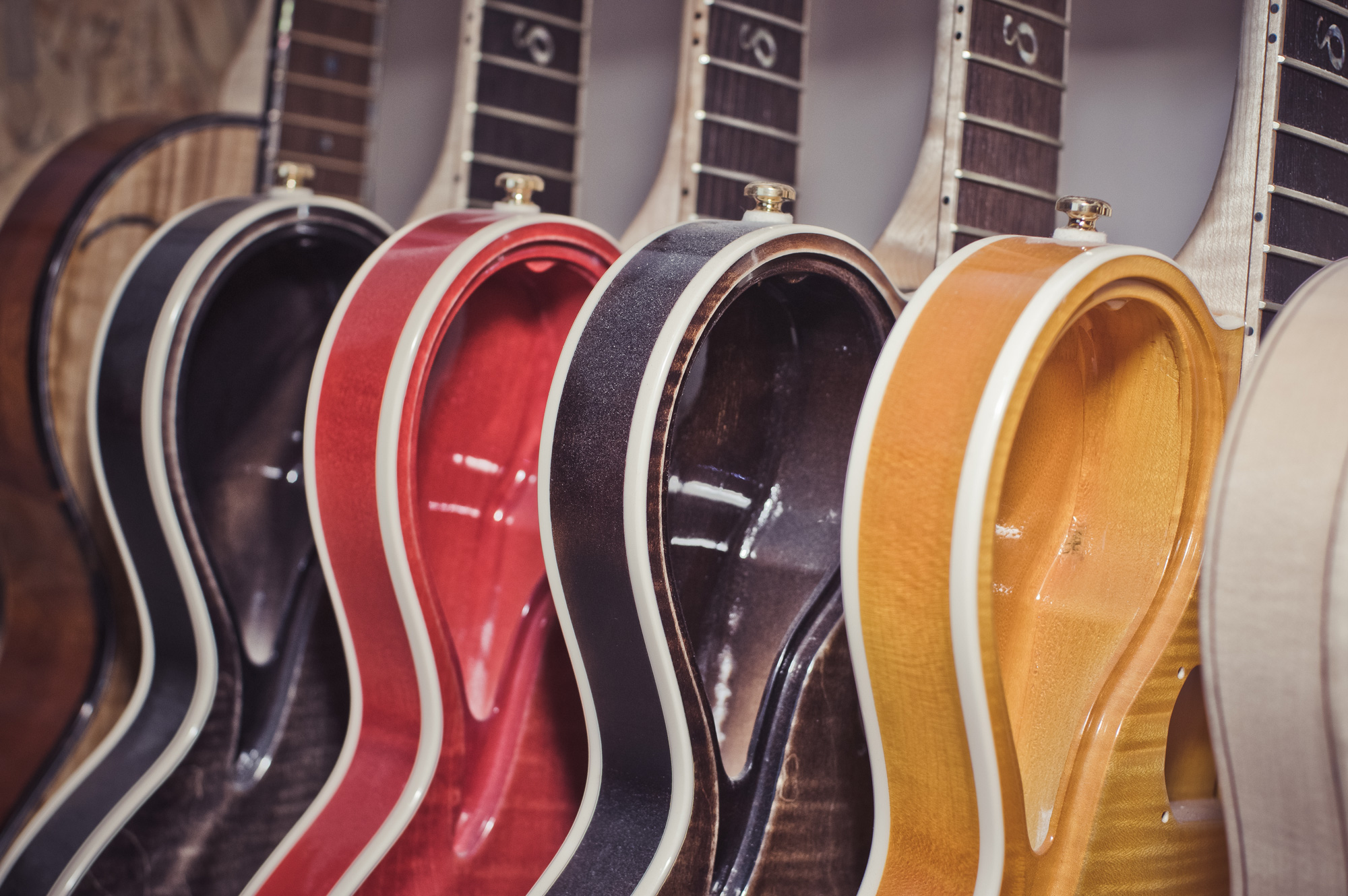
Guitars waiting to be assembled
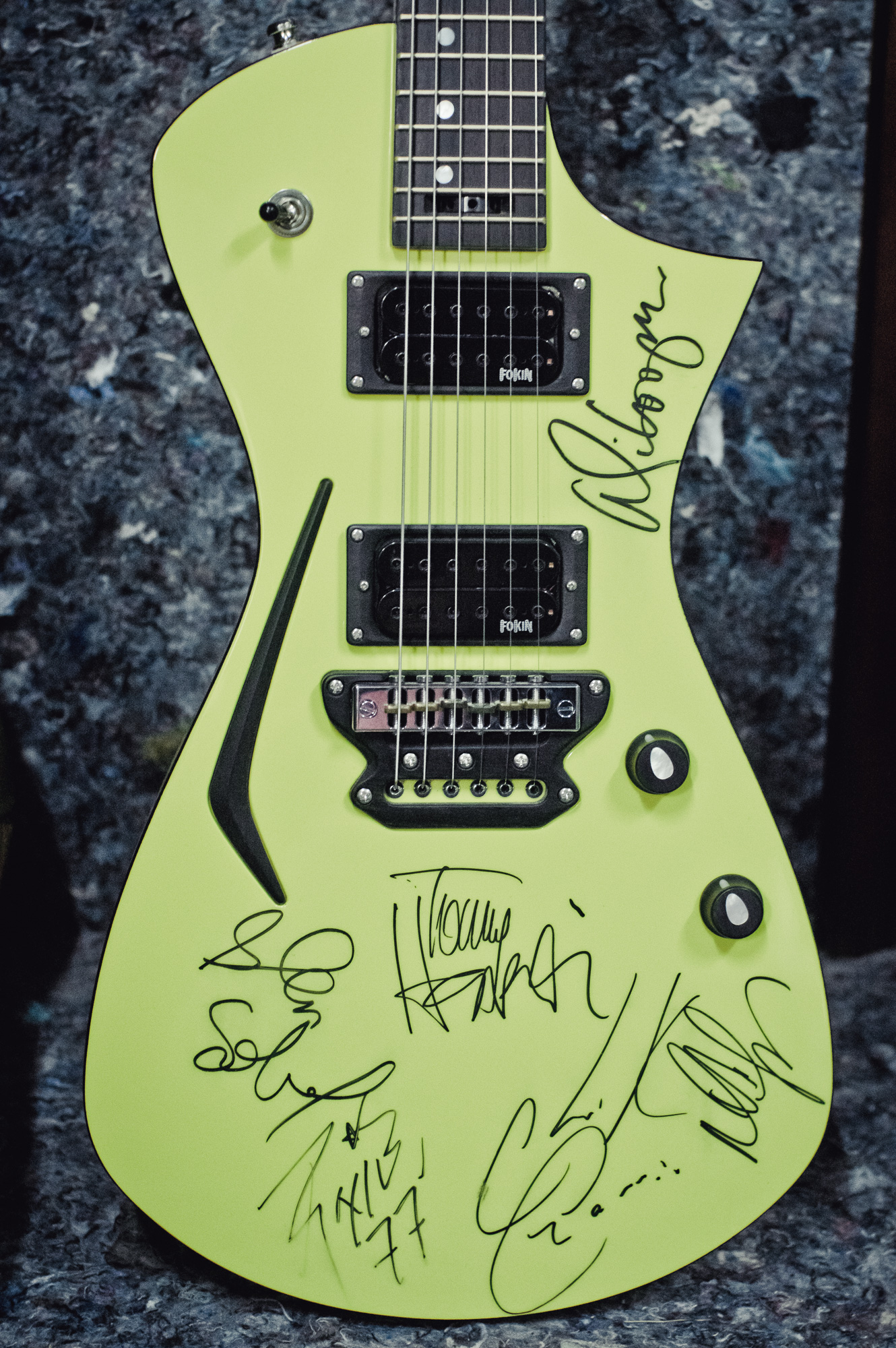
Instrument signed by all the members of Alice Cooper's band
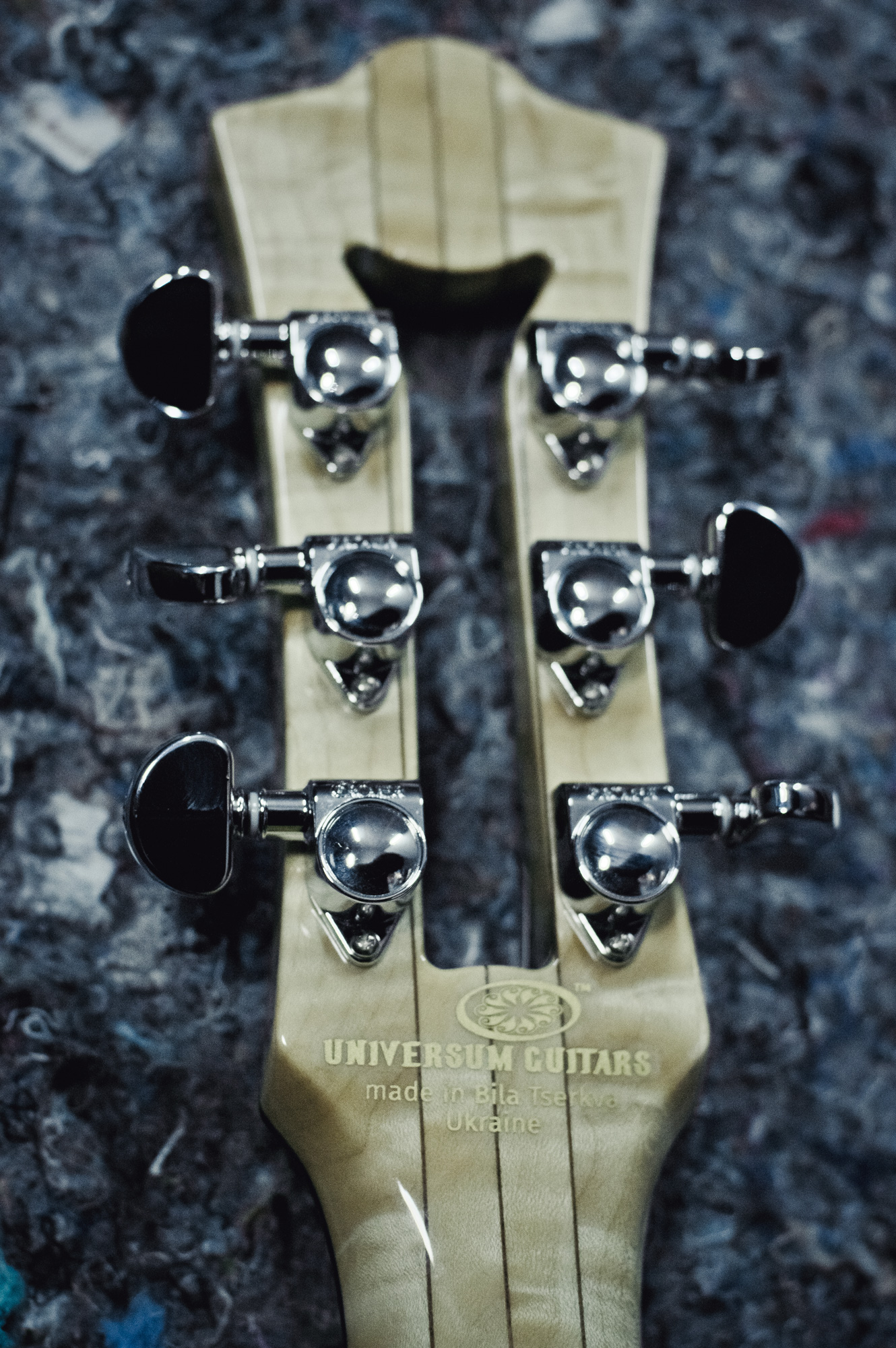

Musician Sergo Chanturiya with a Universum guitar at factory's studio
